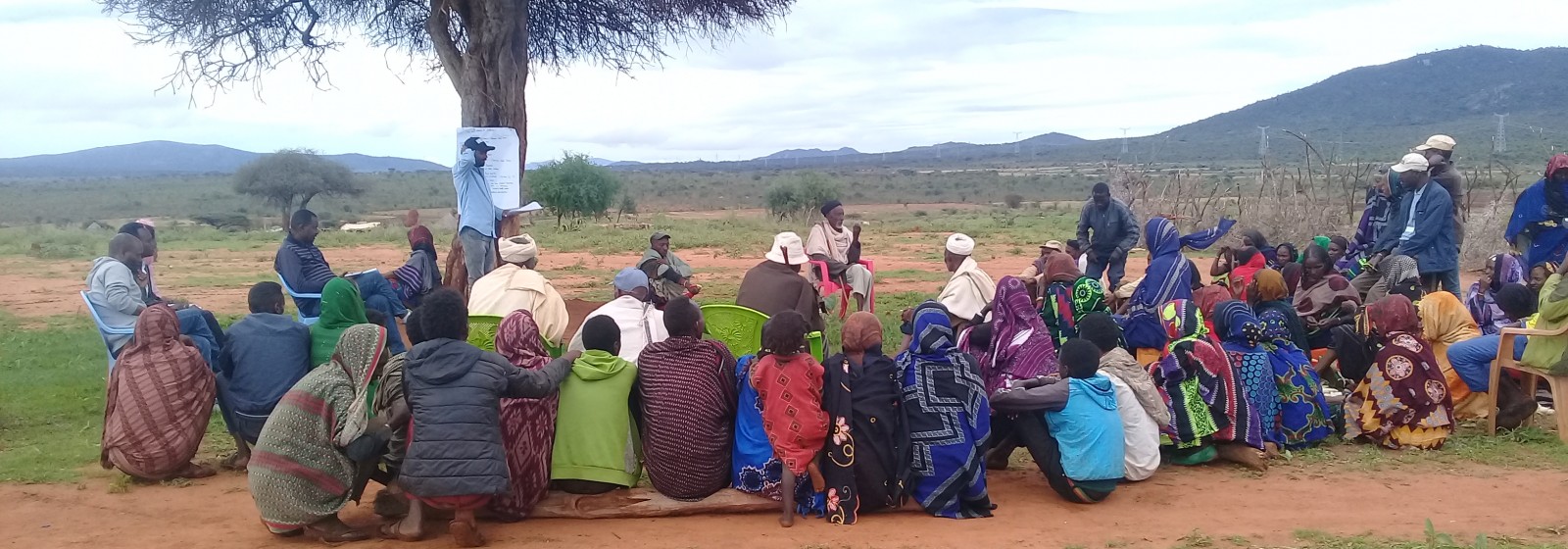Changing the knowledge, attitudes, and practices (KAP) of community members who work in livestock health management is complex and challenging. Their actions are influenced by factors such as limited awareness and knowledge of the causes of animal diseases, and their transmission and control measures. The effects are more pronounced among women working in livestock health management in communities who lack access to advisory services and whose mobility is constrained by cultural norms.
KAP gaps in livestock health management can be addressed partly by introducing information to providers through training or other means. But to change their practices or help them adopt improved animal health management practices, community members need more than factual knowledge. The information provided in conventional formats often does little to influence the perspectives, knowledge, attitudes, and practices of people. Only telling them what to do or communicating technical messages in traditional formats does not usually work in influencing their views and behaviors.
Successful behaviour and attitude change in community members also requires addressing the underlying sociocultural values and norms that shape their world view on animal health management. The patterns of interaction between men and women also need to be addressed in community change initiatives, which requires participatory processes and contextualizing and communicating messages that suit local thinking and perspectives.
The members of the community must feel and accept the need for learning and take ownership of their own animal disease challenges. They need to be engaged in participatory learning processes that explore and analyse animal health management issues so that they can generate solutions together with animal health service providers. This process involves considering and discuss the challenges and possible solutions, and thinking through how those solutions would be implemented, and identifying the changes that they are likely to result from them
Participatory processes such as community conversations can lead to changes in attitudes and practices of community members by engaging them in facilitated dialogues to share information and explore their own perspectives and practices regarding animal health management issues. These conversations are non-judgmental and help bring understanding of the social and cultural contexts in which community members operate. This understanding is vital for animal health service providers to see how technical solutions fit into cultural practices and local realities.
In our experience, community conversations facilitate collaborative learning and action among service providers and community groups. Engaging community members and animal health service providers in mutual learning and co-creation of knowledge promotes understanding of one another’s perspectives and reduces 'social distance'. We noted that action points emerging from community conversations informed local level planning processes and interventions in livestock health management.
In addition, local research and development partners can use the knowledge from community conversations and community actions as a basis for providing continual coaching and mentoring support to community group leaders and members.
Since community groups are often accustomed to their service providers, just telling them what they should be doing, may make it difficult for group members, at the beginning, to openly dialogue on issues and come up with solutions themselves. Using community conversations might seem challenging at first, but using it as an ongoing process. Over time, community members develop the attitudes, skills and confidence necessary to work together with animal health service providers to achieve the desired animal health outcomes.
